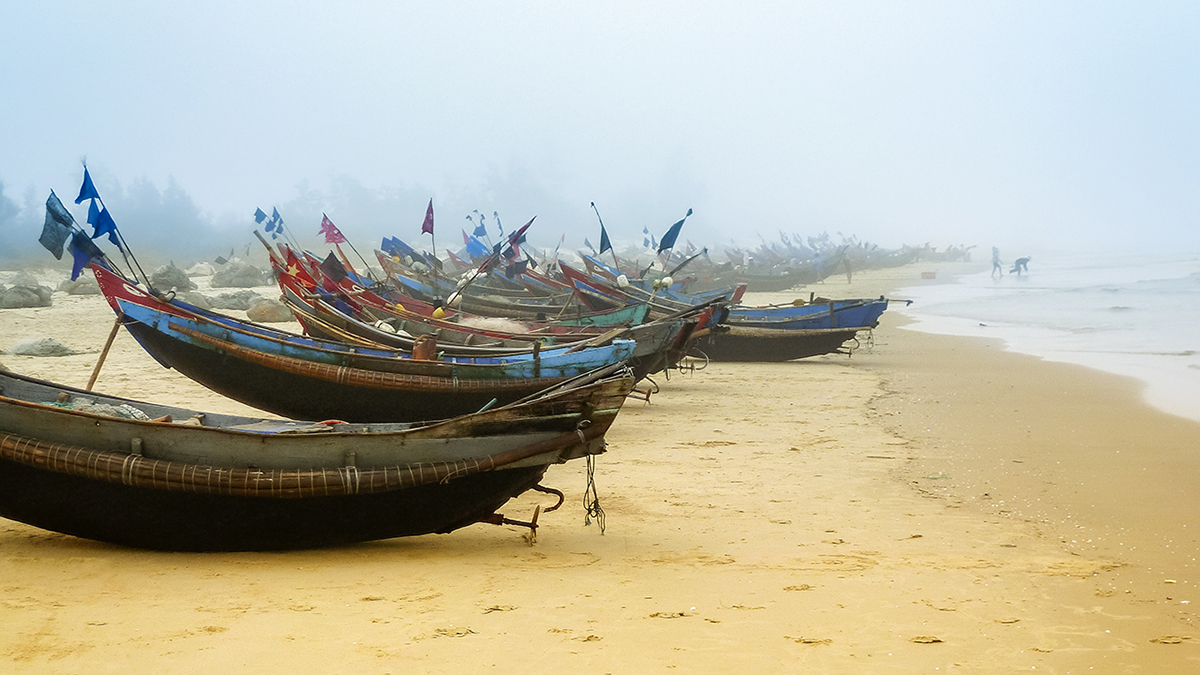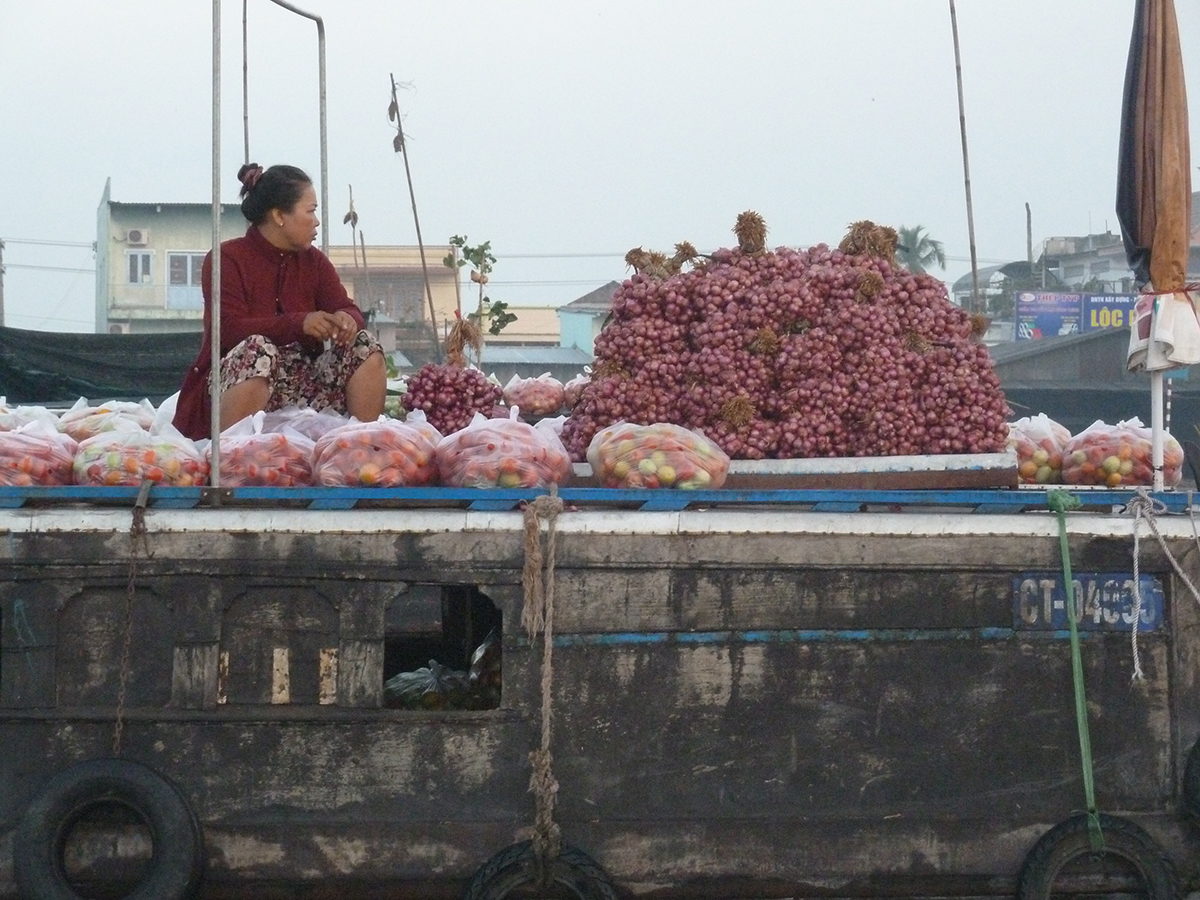Rising seas puts Vietnam in climate change 'bull’s-eye'
By Blaine Friedlander


In a tale of two life experiences, Mike Hoffmann went to Vietnam for the first time in 47 years: On his first tour of duty, he was a 19-year-old U.S. Marine, and for the March 2016 trip, Hoffmann returned as an environmental scientist.
“Vietnam is in the bull’s eye when it comes to climate change,” said Hoffmann, professor of entomology and executive director of the Cornell Institute for Climate Change and Agriculture, who explained that a rising sea level – for a country with 2,000 miles of coastline – presents a major environmental and food security challenge, especially in the Mekong River Delta region where 22 percent of the population lives and about half of the country’s food is produced.
Farmers are seeing the changes and to paraphrase a scientist there, Hoffmann said, “There are no climate change deniers in Vietnam.”
Hoffmann and Chuck Geisler, professor of development sociology, went on the exploratory trip in March to Vietnam to assess the country’s future in the face of climate change.
With rising seas, millions of people in the Mekong Delta region will likely be forced to move. Geisler has interest in studying the social impacts of large-scale human migration inland from coastal zones.
“Rising waters, storm accentuation and on-shore salinity problems will drive this migration,” he said. “But the Vietnamese have survived extreme adversity in the past and may be a leader in coping with sea encroachments and other climate changes in the future.”
Agricultural impact
For the region’s farmers, climate change has enormous implications, as Vietnam is an important player in the global food system. It is the second-largest producer of coffee, a crop grown in the highlands and that is affected by higher temperatures and rainfall pattern changes. Rice is their second-largest export commodity. They also export tea, pineapple, citrus fruit and sugar.
Hoffmann and Thúy Tranviet, senior lecturer in Asian studies, will be offering an undergraduate course, “Climate Change Awareness and Service Learning in the Mekong Delta, Vietnam,” as part of the effort to internationalize Cornell’s curriculum. The course, for which they received a 2016 Internationalizing the Cornell Curriculum grant, includes a language training component and lectures on climate change in the fall with a two-week trip to Vietnam in January 2017, followed by a spring 2017 seminar to summarize their experience.
“Students and many others need to experience the impacts of climate change directly. This is exactly what we hope to achieve during the January visit,” said Hoffmann.
To encourage partnership, Hoffmann, Tranviet and Geisler hope to see more collaboration between Cornell research programs and Vietnamese universities, nongovernmental organizations and the government.
‘Friendly, caring … forgiving’
As a Vietnam War veteran, Hoffmann reflected on seeing Vietnam for the first time in a half-century.
“The first two days were really tough,” he said. “The people were so friendly, caring and most surprising, forgiving – the war was brutal – and on this trip, we got to know what they were really like.”
Hoffmann and Geisler traveled with a small group organized by writer Susan Dixon, Ph.D. ’87. The group met a 91-year-old survivor of the My Lai massacre. “Shewas so welcoming, we met for about 40 minutes. I was just stunned. That visit was very special,” said Hoffmann.
The professors reflected on the environmental catastrophe of the Vietnam War. Even today unexploded ordnance and the lingering effects of the toxic defoliant Agent Orange remain serious problems. And now Vietnam faces one of its greatest challenges ever – rapidly warming climate and extreme weather events that wreak havoc on agriculture.
After returning from the trip, Geisler said, “I was astonished at the combined pragmatism and goodwill of the Vietnamese people, that is by their ability to pick up the pieces and move on. Somebody used the phrase ‘living with shock’ ... I expected Vietnamese to be in shock – a permanent state of shock, but the country really is happy.”
Said Geisler: “If there is a country on the planet that could teach us lessons about how to cope with and expand the definition of adaptation to climate change, it’s Vietnam. They’re going to do it, they’re going to survive it.”
Media Contact
Get Cornell news delivered right to your inbox.
Subscribe